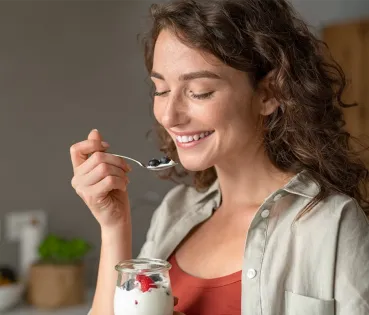
One cup less...
Coffee is one of the drinks that form part of our everyday life. Water and tea are the only beverages more popular than coffee in the world.
Whether it is due to its aroma, its stimulating capacity, its flavour or its social predisposition for the so-called ‘coffee break’ or even for establishing personal relations… it has become a necessary drink. Waking up with a cup of coffee is, for a large part of the population, a compulsory ritual for a good start to the day and for recharging their batteries thanks to the caffeine.
Recent studies have shown that coffee brings many health benefits thanks to its high levels of antioxidants and nutrients. Moderate consumption can help people feel less tired and increase their energy levels, as well as improving several aspects of the brain function, including memory, moods, vigilance, energy levels, reaction times and general mental function. Additionally, caffeine is found in almost all the commercial fat-burning supplements and it stands out as a substance that can increase adrenalin levels in the blood.
Do we drink too much coffee?
Coffee consumption figures indicate that we drink around three billion cups every day, with a world population of 7,761 million inhabitants, according to the United Nations. In moderation, coffee seems to be good for most people. Drinking between 3 to 4 cups a day, or up to 400 milligrams of caffeine is safe, according to the European Authority on Food Safety in the European Union. In some cases, the lockdown caused by Covid-19 has meant a considerable increase in consumption, causing adverse affects such as insomnia, nervousness or bowel problems, amongst others. Six cups of coffee a day were considered to be the upper limit for safe consumption, according to a world study by the Australian Centre for Precision Health of the University of South Australia.
But coffee is not for everyone. A large part of the population doesn’t like it or it makes them ill and they look for these benefits and energy in alternative products. There are some options that make it possible get away from the caffeine and that produce the same long-lasting energy as coffee. Additionally, these products bring improvements to the diet; they strengthen the sleep cycle and bring benefits to general health. We will show you some alternatives to coffee so that you drink one cup less. Or maybe none at all.
Do you drink too much caffeine?
Τηισ caffeine calculator shows how many caffeine drinks are safe and how much could be fatal according to a person’s body weight.
Alternatives to coffee:
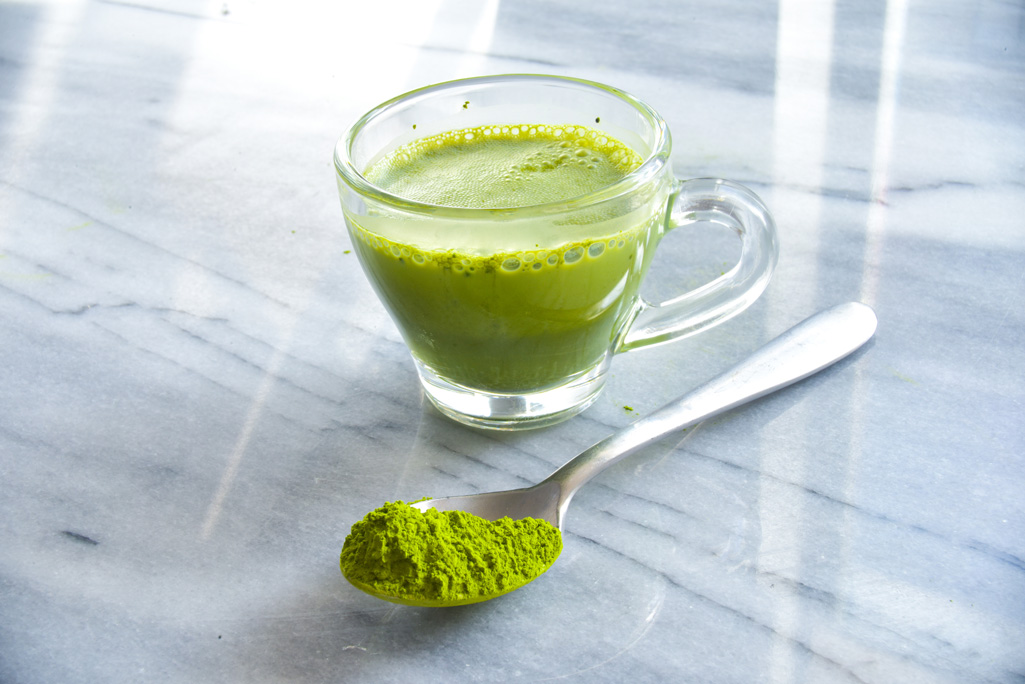
Matcha
1 of 6
Matcha green tea is a healthy alternative to the regular caffeine dose. It has antioxidants that help not only with our morning concentration levels, but that can also help to clear up skin problems.
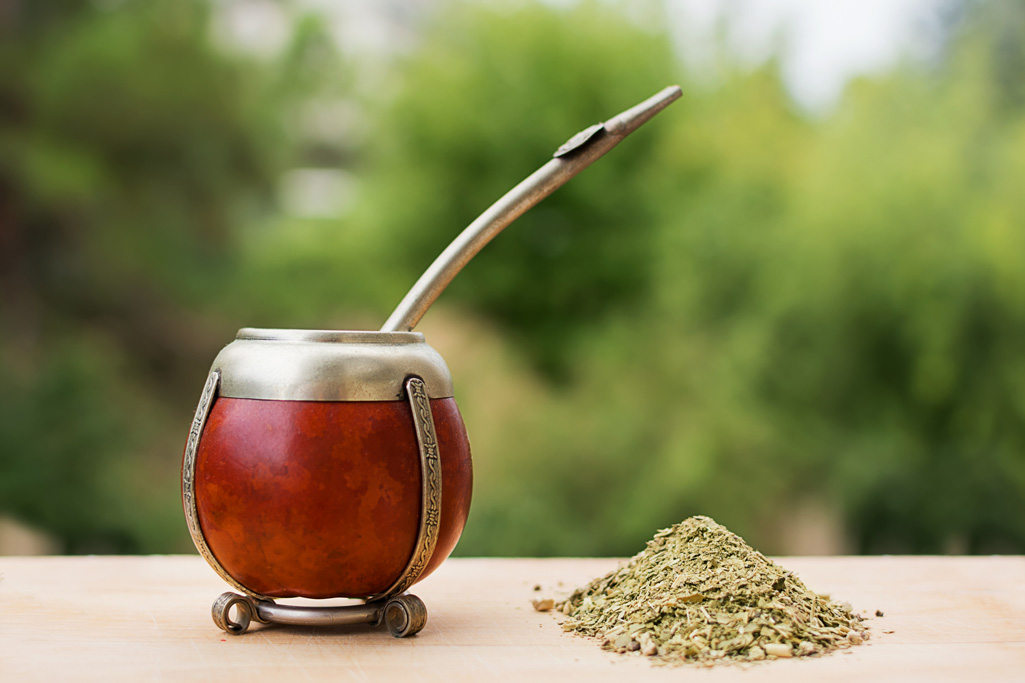
Yerba mate tea
2 of 6
Yerba mate is a little known source of caffeine. It contains a variety of vitamins and minerals such as vitamin A, C, iron, magnesium and others.
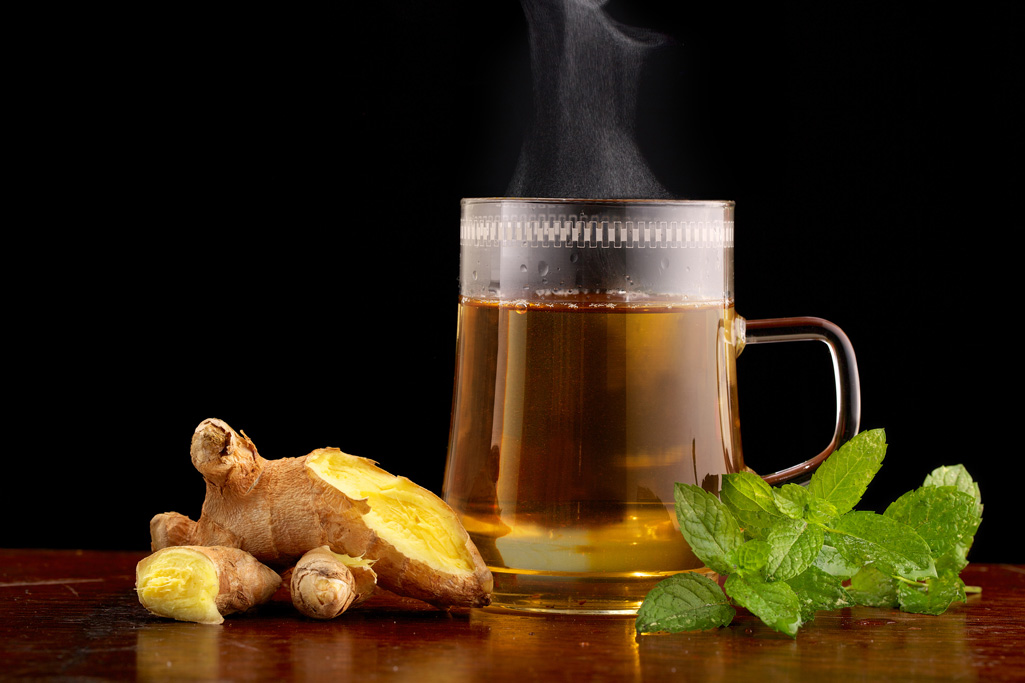
Hot water with ginger
3 of 6
When trying to reduce regular coffee and caffeine intake, hot water with ginger is an excellent solution. Ginger is a natural ingredient that promotes and stimulates the metabolism, therefore we often find it used in many dietetic and fat-burning supplements. It will keep our digestive system working at a high level all day long.
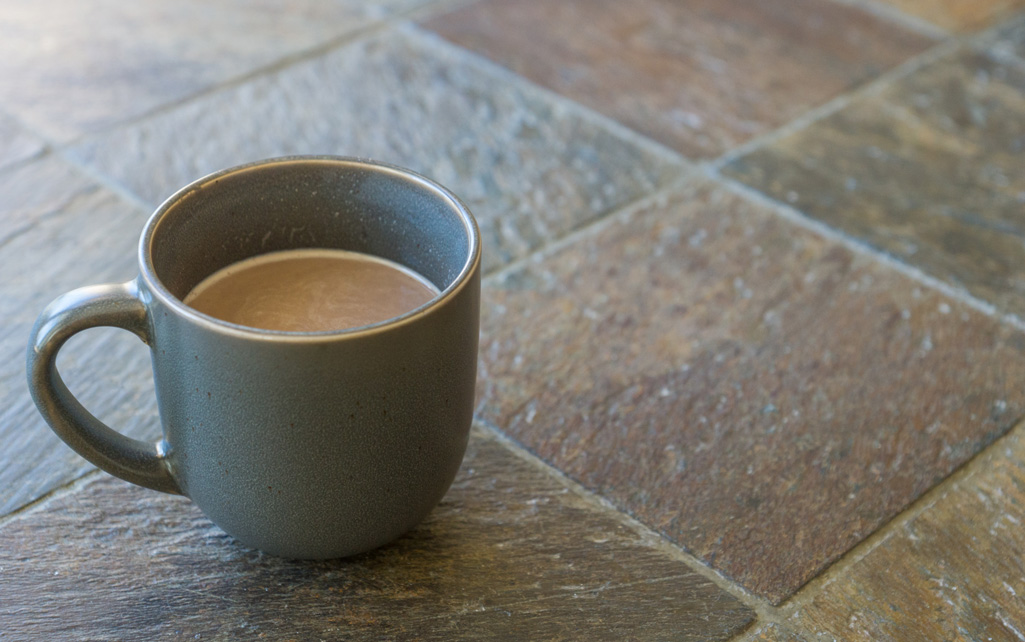
Cocoa powder with maca
4 of 6
Cocoa powder with maca in a hot drink similar to hot chocolate is a surprising option. Cocoa powder contains natural caffeine, whilst maca is a root that provides a natural energy boost; it helps to increase resistance and it also gives our body additional vitamins and minerals.
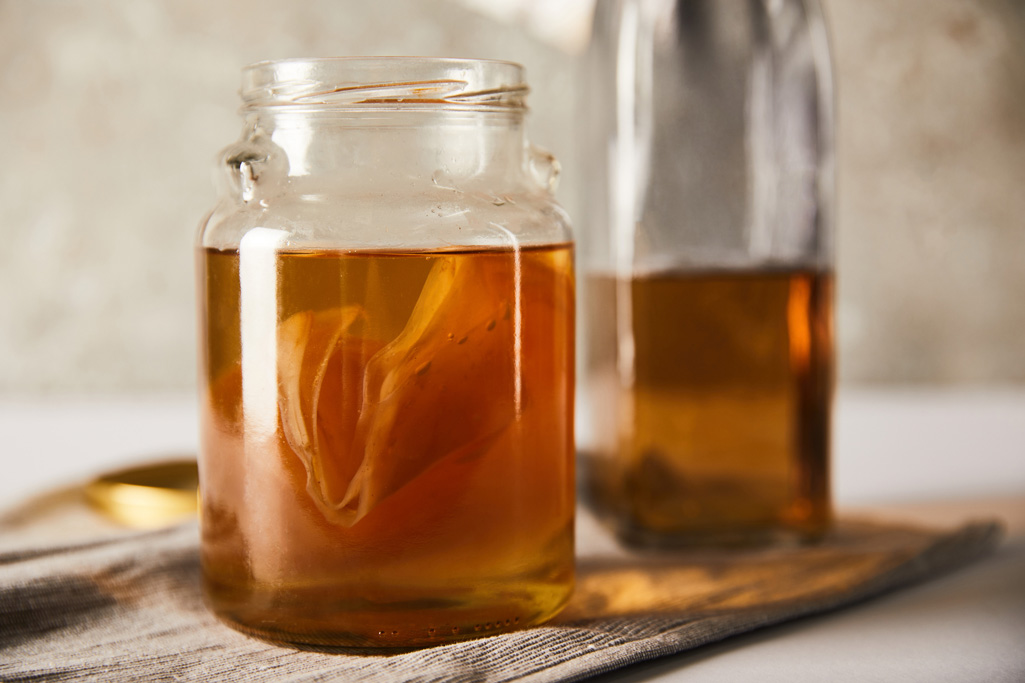
Kombucha tea
5 of 6
Kombucha is a type of yeast that can ferment along with tea, sugar or other flavours or ingredients. This fermented drink, acidic or sweet according to taste, is useful for treating memory loss and regulating high blood pressure.
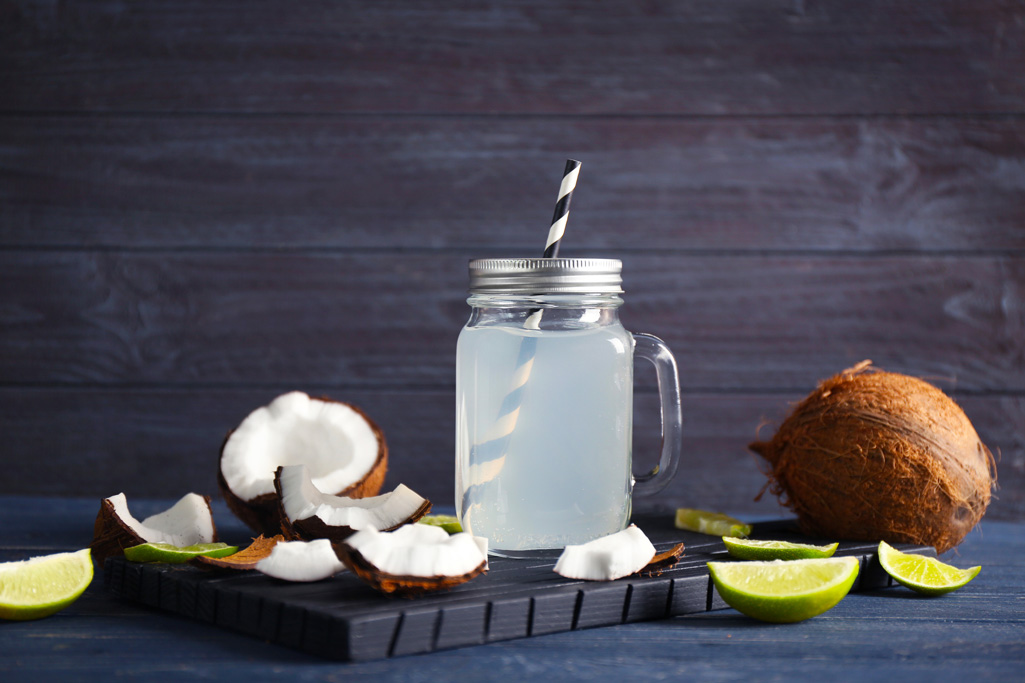
Coconut water
6 of 6
It is considered to be one of the healthiest drinks on the market. Made from young, green coconuts, coconut water is a clear, milky, naturally sweet liquid, which contains bioactive enzymes and it is full of re-hydrating electrolytes, which ensure a good injection of energy.



